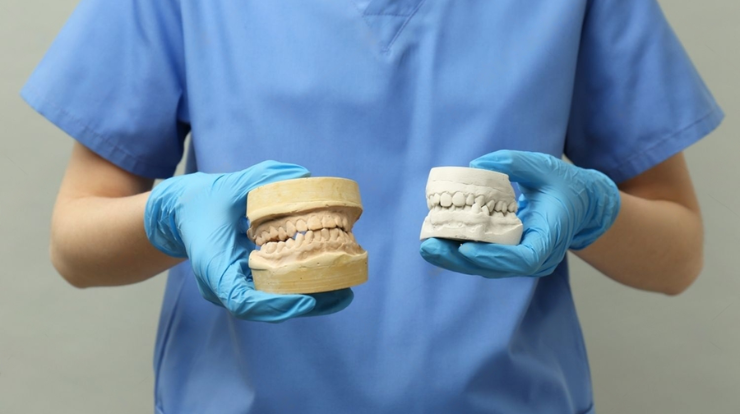3D printing technology has revolutionized various industries, and dentistry is no exception. In Dubai, the adoption of 3D printing for dental implants has surged, providing patients with customized, efficient, and high-quality solutions. This article delves into the materials used for 3D printing dental implants in Dubai, exploring their properties, benefits, and applications.
The Significance of Material Selection in 3D Printing Dental Implants
The choice of material for 3D printing dental implants is crucial. It affects the implant’s biocompatibility, durability, and overall performance. In Dubai, dental professionals select materials based on stringent criteria to ensure patient safety and the long-term success of implants.
Commonly Used Materials for 3D Printing Dental Implants
- Titanium and Titanium Alloys
Titanium is a popular choice for dental implants due to its excellent biocompatibility, strength, and corrosion resistance. Titanium and its alloys are frequently used in 3D printing Dubai for their ability to integrate well with bone tissue. The most common titanium alloy used is Ti-6Al-4V, which combines titanium with aluminum and vanadium to enhance its mechanical properties.
- Zirconia (Zirconium Dioxide)
Zirconia is another favored material in Dubai’s dental industry for 3D printing implants. It is a ceramic known for its exceptional strength, aesthetic appeal, and biocompatibility. Zirconia implants are particularly popular for patients seeking a metal-free alternative and for those with metal allergies. Its tooth-like color makes it ideal for visible areas in the mouth.
- Cobalt-Chromium Alloys
Cobalt-chromium alloys are used in some dental implant applications due to their high strength and wear resistance. These materials are often utilized for the framework of dental prosthetics. In Dubai, they are chosen for complex cases where extra durability is required.
- Polymers and Composites
Advanced polymers and composite materials are also making their way into the 3D printing of dental implants. Polymers such as PEEK (polyether ether ketone) offer good biocompatibility and flexibility, making them suitable for temporary implants and prosthetics. Composite materials, which combine polymers with ceramics or metals, are used to achieve specific properties tailored to individual patient needs.
Advantages of Using These Materials in Dubai
- Biocompatibility
Materials like titanium and zirconia are highly biocompatible, reducing the risk of adverse reactions and promoting successful osseointegration. This is particularly important in Dubai, where patient safety and implant success rates are paramount.
- Durability and Longevity
The materials used for 3D printing dental implants in Dubai are chosen for their durability. Titanium and zirconia, for instance, can withstand the mechanical forces exerted during chewing and can last for many years without degradation.
- Aesthetic Appeal
Zirconia’s tooth-like color and translucency provide a natural appearance, making it an excellent choice for implants in the visible areas of the mouth. This aesthetic advantage is a significant consideration for patients in Dubai, where cosmetic dentistry is highly sought after.
- Customization and Precision
3D printing allows for precise customization of dental implants to match the patient’s anatomy. Materials used in Dubai’s 3D printing labs can be accurately manipulated to create implants that fit perfectly, enhancing comfort and functionality.
Challenges and Considerations
- Cost
High-quality materials like titanium and zirconia can be expensive, impacting the overall cost of dental implants. However, the investment is justified by the long-term benefits and success rates.
- Technical Expertise
The successful use of these materials requires specialized knowledge and expertise. Dental professionals in Dubai undergo rigorous training to master the techniques involved in 3D printing and material handling.
- Regulatory Compliance
Materials used for 3D printing dental implants must comply with strict regulatory standards to ensure patient safety. In Dubai, dental clinics adhere to international guidelines and local regulations to maintain high standards of care.
Future Trends in 3D Printing Materials for Dental Implants
The field of 3D printing materials is constantly evolving. In Dubai, research is ongoing to develop new materials with enhanced properties. Innovations such as bioactive materials that promote bone growth and antimicrobial materials to reduce infection risks are being explored.
Conclusion
In Dubai, the use of advanced materials for 3D printing dental implants is transforming dental care. Titanium, zirconia, cobalt-chromium alloys, and high-performance polymers are among the top choices for their biocompatibility, durability, and aesthetic qualities. As technology and materials science advance, the future of 3D printing in dentistry looks promising, offering even more tailored and effective solutions for patients.
By understanding the materials used and their benefits, patients and dental professionals in Dubai can make informed decisions, ensuring successful outcomes and improved oral health.

